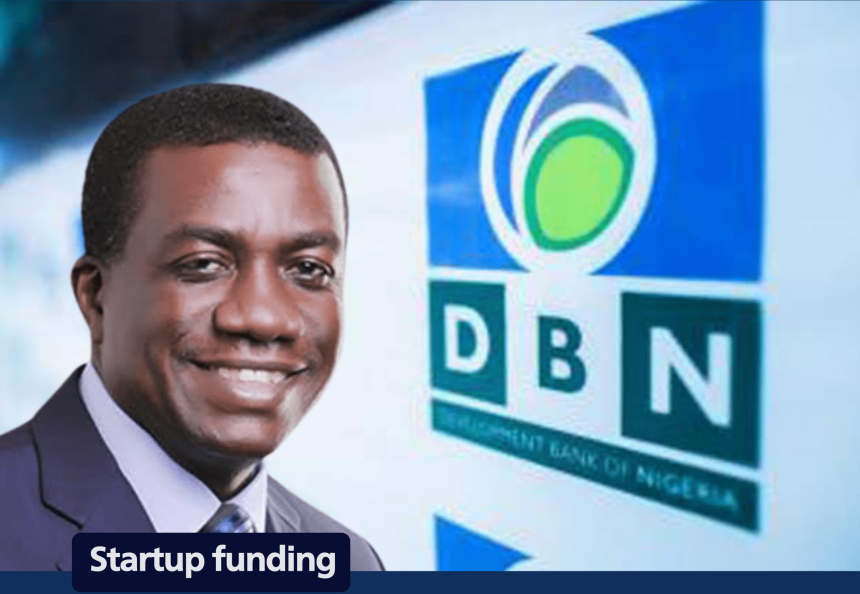In what industry analysts have described as a bold step to power Nigeria’s innovation economy, the Development Bank of Nigeria (DBN) has awarded ₦13 million in grants to three high-impact tech startups during the 2025 Techpreneur Summit held in Lagos.
According to DBN, the grants, awarded through the Grooming Endowment Trust (GET) in collaboration with CREM, are part of a broader vision to build a resilient, data-driven, and inclusive MSME landscape.
But DBN didn’t stop there as the bank also launched a first-of-its-kind MSME Data Asset platform—a tool designed to transform how stakeholders understand and invest in small and medium enterprises across Nigeria.
Spotlight on the Winners
The ₦13 million grant pool was distributed among three startups making waves in Nigeria’s real economy sectors including:
- BuyScrap – Awarded ₦6 million, this digital platform connects waste generators, recyclers, and industries to improve efficiency in Nigeria’s growing recycling sector.
- Qiqi Farms – Granted ₦4 million, the agritech startup helps local farmers access hospitality businesses and international export markets through data-driven matchmaking.
- Eco-Cyclers – A youth-led initiative based in Enugu received ₦3 million to expand its tech-enabled recycling programs and youth empowerment model.
What we know
Each of these startups appears to stand at the intersection of technology and tangible socioeconomic impact —prioritizing sustainability, food security, and environmental responsibility.
Beyond Capital
DBN Managing Director/CEO Tony Okpanachi framed the Summit theme, “CTRL + SHIFT: Tech Empowered Movement for Naija,” as more than a tech phrase.
“This isn’t just a keyboard shortcut,” he said in his keynote address. “It’s a mindset reset—powered by technology—to build a more inclusive, innovative, and resilient business landscape.”
Okpanachi emphasized that the grants align with DBN’s broader AMPLIFI Strategy, which integrates digital transformation, sustainability, and scalability into its operations.
Techparley gathered that DBN’s initiatives such as the Digital Shift Workshops and Eco-Innovation Challenge form part of this evolving playbook.
The grants, Okpanachi explained, are catalytic. “We are proud to support entrepreneurs whose ideas shape tomorrow.”
Why It Matters
Nigeria’s MSMEs constitute over 90% of businesses in the country, yet most operate with limited access to finance, data, or technical assistance.
While Lagos continues to attract venture capital, thousands of high-potential startups across other regions remain underserved.
By combining grant funding with strategic data insights, DBN is creating a dual-track solution: seed local innovators and inform smarter support for those that follow.
The grants also show a welcome shift away from fintech-first support to a more diverse portfolio of solutions—touching real-world challenges like waste recovery and food logistics.
SIDE LINES
One of the most significant announcements at the summit was the unveiling of the DBN MSME Data Asset platform —a digital tool designed to inform investment, policy, and business decisions using real-time, evidence-based insights.
According to Jeremy Dan Okayi, DBN’s Head of Strategy, Policy & Innovation, the platform is “a reservoir of insight, potential, and direction —built on two years of collaboration and shared vision.”
Talking Points
At Techparley, we consider this initiative by the Development Bank of Nigeria’s (DBN) as a commendable step towards fostering entrepreneurship and economic growth.
For one thing, this move will inject the much-needed capital into these businesses.
As the Summit’s closing keynote aptly noted, “Nigeria’s youth are no longer waiting for change — they are creating it.” The DBN’s direction in amplifying their voices and supporting their growth is indeed a welcome development.
However, while funding is crucial, it’s equally important to provide ongoing mentorship and support to ensure the long-term success of these startups.
Unfortunately, this aspect is often lacking in Africa, where many funded ventures struggle to scale due to inadequate guidance and resources.
To maximize the impact of its investment, the DBN should consider pairing funding with structured mentorship programs, regular check-ins, and strategic guidance.
Anyone will agree that this holistic approach would not only enhance the prospects of these startups but also contribute to a more sustainable entrepreneurial ecosystem in Nigeria.
And, by doing so, the DBN can set a strong precedent for other investors and stakeholders, demonstrating that funding is just the first step in nurturing innovative ideas and turning them into successful, scalable businesses.






